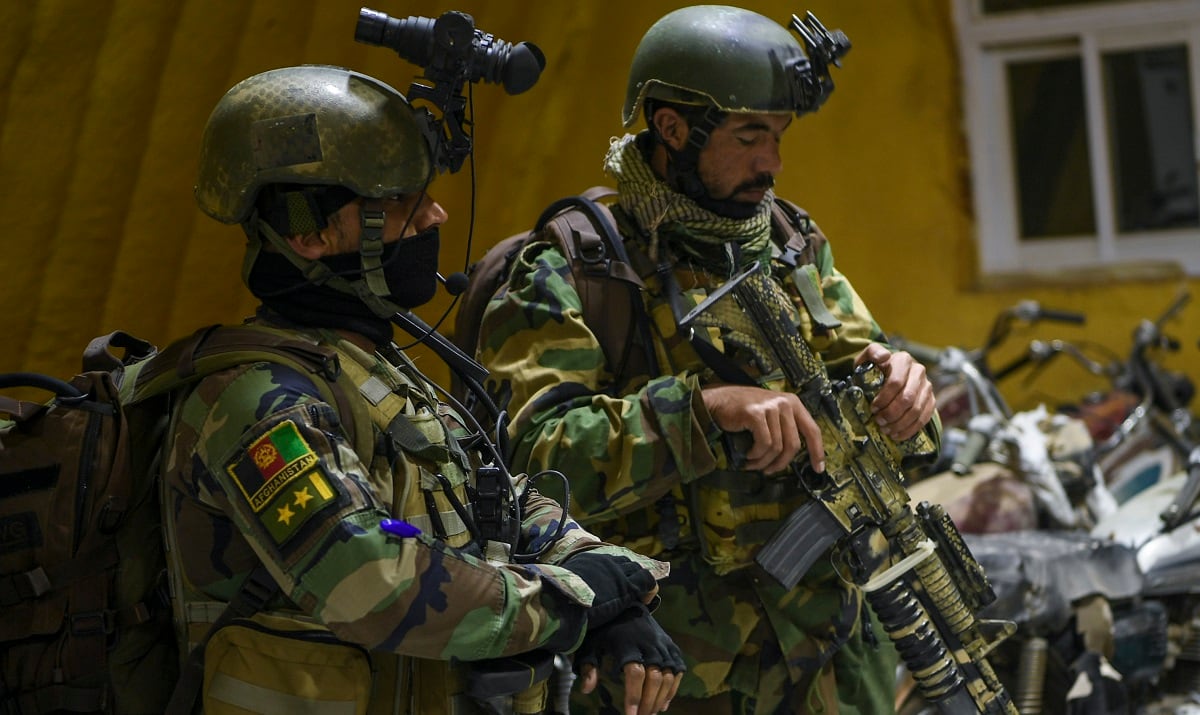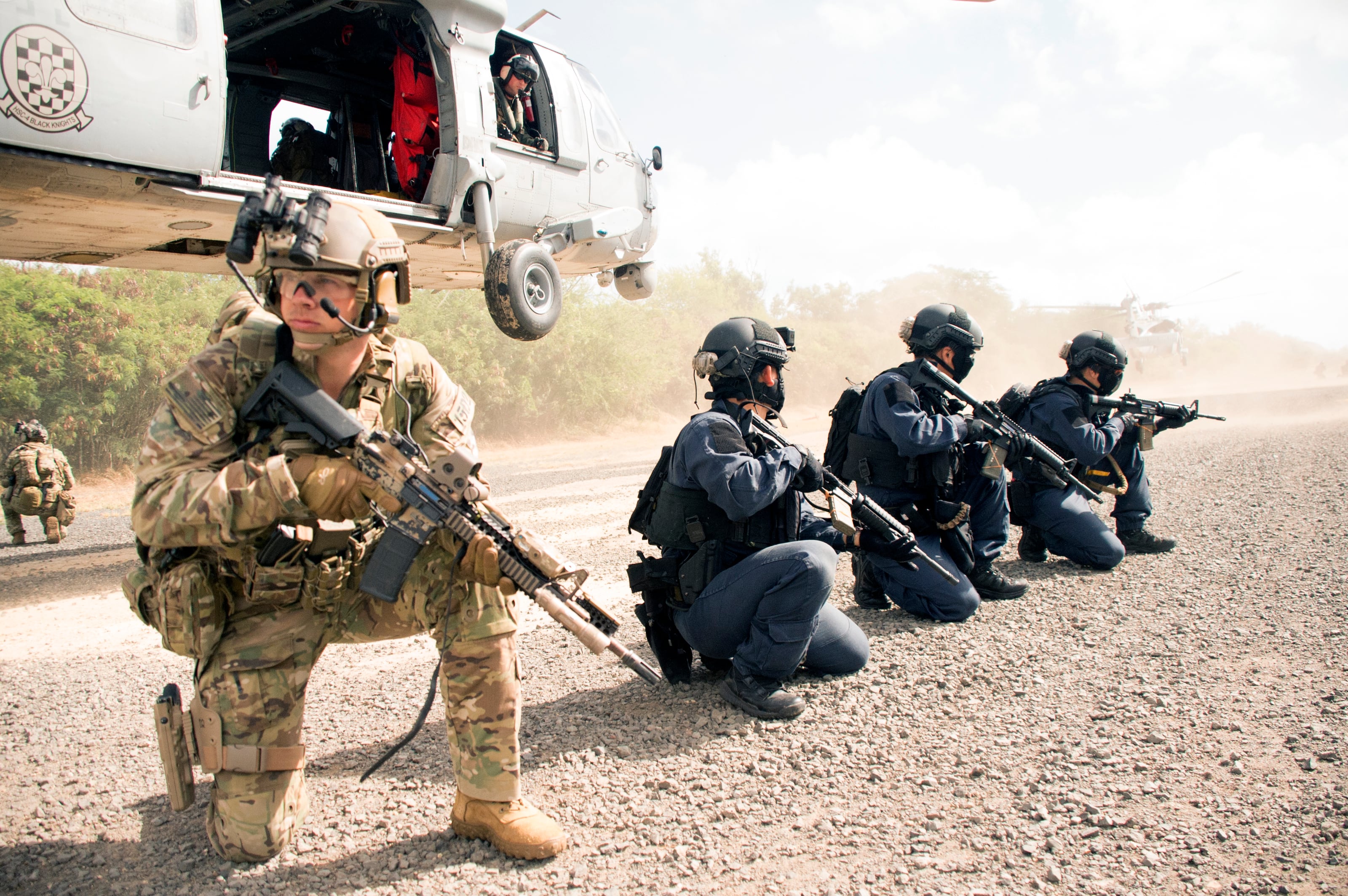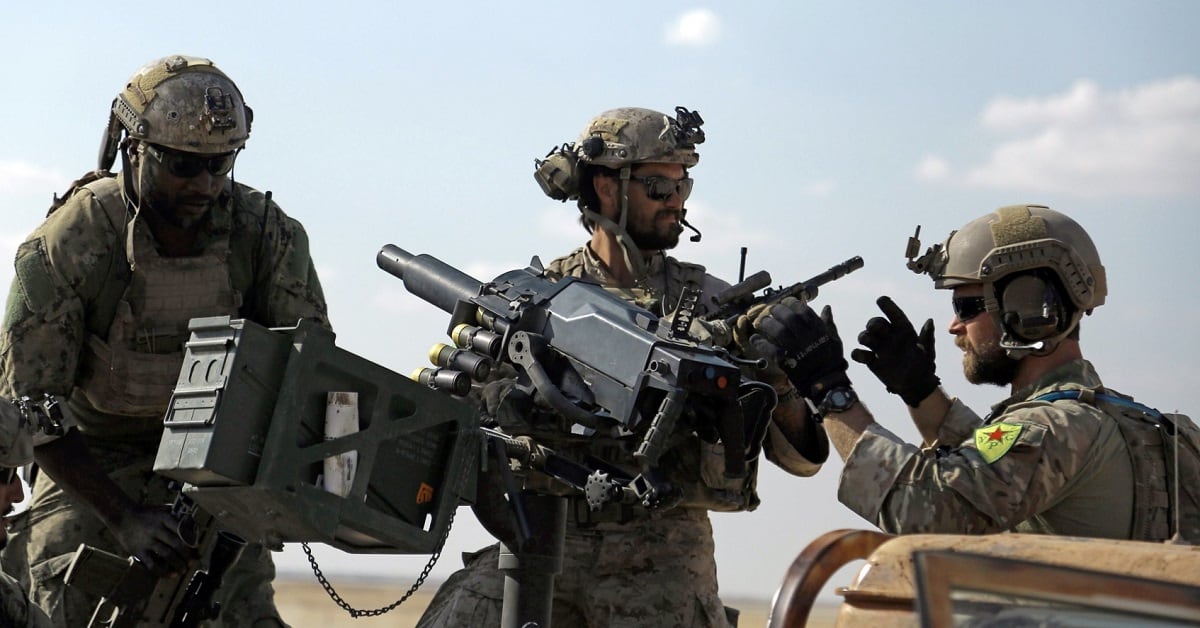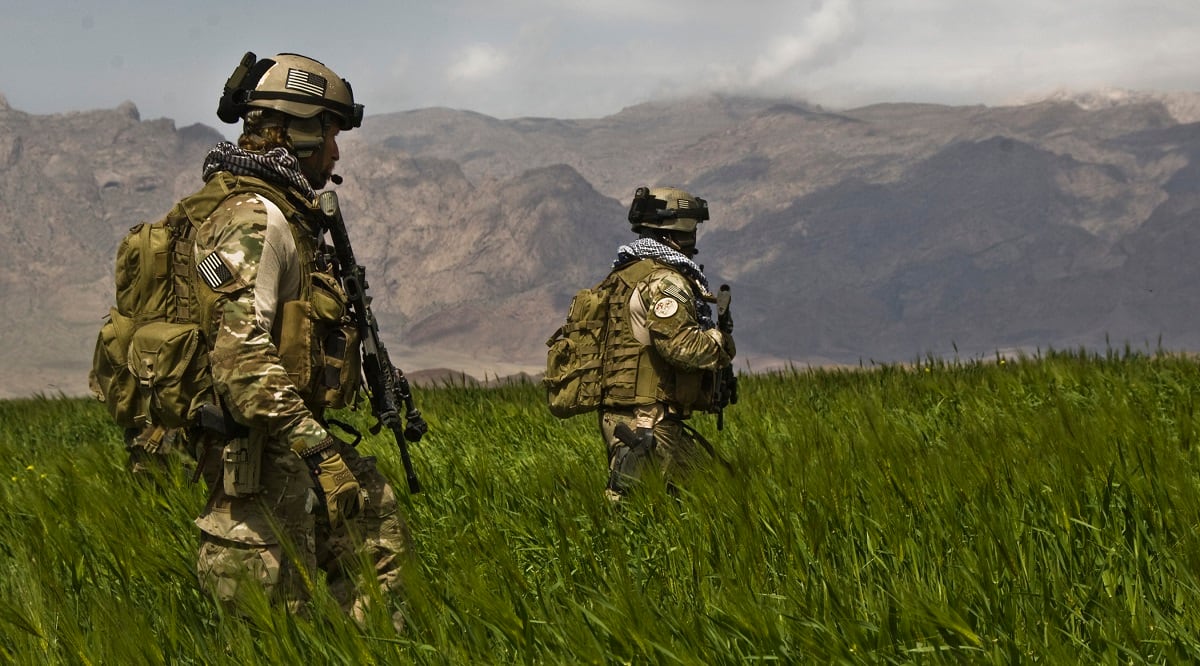The obsession with great power competition to confront China and Russia may be important, but the U.S. military is still more likely to face terrorism and insurgency in future conflicts, two lawmakers and veterans of the military and intelligence community said Thursday.
There is a natural tendency for the armed services and the defense industry to take refuge in the comfort zone of preparing for conventional war following a period of costly guerrilla warfare, the representatives said.
But in the end, fighting another terror group, either directly or by buoying another nation’s military, is historically more likely than a large tank battle in Eastern Europe or an island-hopping campaign in the Pacific.
“I worry that the pendulum is going to swing too far away from counterterrorism, and we’ll lose those valuable lessons learned, as we did after Vietnam,” Rep. Michael Waltz, R-Fla., an Army Green Beret veteran, said at a panel hosted by the Center for Strategic and International Studies.
“I can almost imagine the champagne popping in the defense industrial base because now we can get back to our comfort zone of building bombers and tanks and aircraft carriers," Waltz added. “Having special operators learn languages doesn’t create a lot of jobs in middle America."
Those perishable skills and lessons learned from pushing back against nascent terror groups aren’t the basis of many big defense contracts, but they’re what stems geopolitical troubles, said Rep. Abigail Spanberger, D-Va., a former CIA operations officer.
“Sometimes the conversation about our counterterrorism efforts is about stopping terrorists from attacking us. But our counterterrorism efforts are so much more than that," Spanberger said.
“Like with Yemen, like with Syria, the list goes on, Afghanistan, Iraq, East Africa, it’s the destabilizaiton that these terrorist organizations are able to create that is a much broader, long-term strategic threat," she added.
Although the wars in Afghanistan and Iraq aren’t producing the same number of American casualties as the surge years, civilian casualties have been high. The airstrike campaigns in Raqqa and Mosul were heavily scrutinized by human rights groups, and civilian casualties in Afghanistan have spiked over the past few years.

And among U.S. troops, the casualties and mission tempo hit Army special operators and their uplift forces, which are mostly conventional infantry, uniquely hard.
“It does have an impact back at home," Spanberger said. “Service members going on tours, their second, third, fourth. The impact on families back home, the impact on us back home, culturally, economically because of that constant churn, is what makes it different.”
That being said, Spanberger noted that the U.S. military has maintained some measure of a presence in other allied countries after setting up interim governments.
“I think it’s important to note, we didn’t just walk out of Japan and Germany,” she said.
Right-sizing the U.S. commitment is important, both lawmakers said. A counterterrorism strategy and a train, advise and equip mission for the Afghan military should be continued, they added.
RELATED

Training Afghan personnel has proven difficult, often due to educational shortfalls that plague the recruiting pool there.
“We have a high illiteracy rate in the Afghan military, but I’ll remind people, we had a higher illiteracy rate in the South Korean military in the 1950s than the Afghan Army has today," Waltz said.
The potential for a wholesale withdrawal from countries in the Middle East concerned both lawmakers.
“The goal cannot just be bring the troops home,” Waltz said. “What isolationists are not explaining is what we do after. ... If we have to fight our way back in, with our local allies, like Kurds in Syria or Afghans, it’s going to be more expensive.”

What the U.S. military and intelligence community still lack, after more than 17 years of war, is a broader strategy for how to undermine the ideology of Islamic extremism, the congressman said. Part of that goes beyond what the military can do beyond propping up local security forces and involves foreign policy programs and aid initiatives.
“If [terror groups] are meeting basic needs, it’s very difficult to root it out,” Spanberger said. “Where there are holes [in governance], extremists will fill it.”
The U.S. government should also be doing more to empower Western ideals, according to Waltz.
“One of them for me is girls’ education,” he said. “If you look at societies around the world where women are empowered, you don’t have a big extremism problem. Not to be sophomoric or oversimplify, but there is a strong correlation there.”
There have been massive gains in the areas of women’s rights and civil liberties in Afghanistan since the fall of the Taliban, much of it pushed by NATO’s Resolute Support mission, which promotes recruiting Afghan women as pilots and police officers among other roles.
There is concern that those gains for women and other minority groups would be rolled back if U.S. troops were to leave.
“I don’t believe we have a choice but to be there, as long as half the world’s terror organizations exist in the Afghan-Pakistan border region," Waltz said, noting that ISIS’ Afghan franchise and al-Qaida remain active in the region.
“Multiple administrations have tried to say ‘too hard, too expensive, too long, we’re done,' but they’re not done with us,” Waltz added.
Kyle Rempfer was an editor and reporter who has covered combat operations, criminal cases, foreign military assistance and training accidents. Before entering journalism, Kyle served in U.S. Air Force Special Tactics and deployed in 2014 to Paktika Province, Afghanistan, and Baghdad, Iraq.




